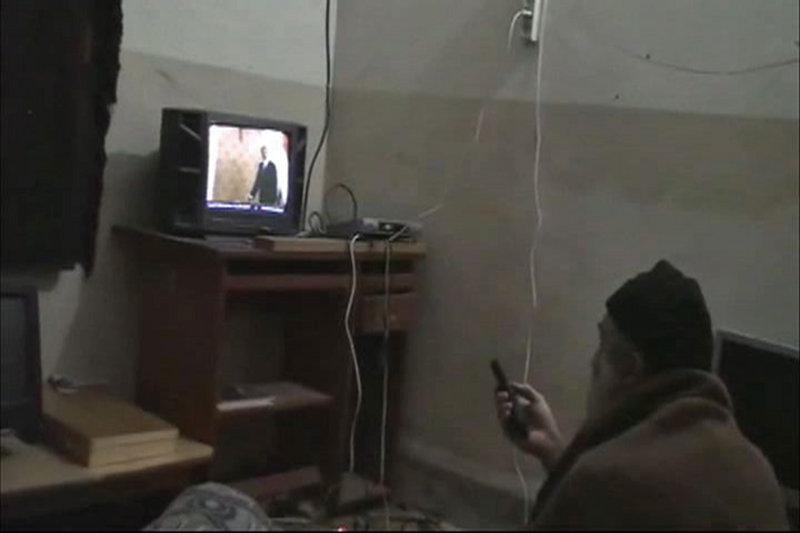ABBOTTABAD, Pakistan — Osama bin Laden was out of touch with the younger generation of al-Qaida commanders, and they often didn’t follow his advice during the years he was in hiding in northern Pakistan, U.S. and Pakistani officials now say.
Contradicting the assertions of some American officials that bin Laden was running a “command and control” center from the walled compound in Abbottabad, Pakistan, officials say that bin Laden clearly wasn’t in control of al-Qaida, though he was trying to remain involved or at least influential.
“He was like the cranky old uncle that people weren’t listening to,” said a U.S. official, who’d been briefed on the evidence collected from the Abbottabad compound and who spoke only on condition of anonymity because of the sensitivity of the issue. “The younger guys had never worked directly with him. They did not take everything he said as right.”
Nearly two months after bin Laden was killed by U.S. Navy SEALs who raided his hideout in the early morning hours of May 2, a more detailed picture is emerging of how the world’s most wanted fugitive lived out his final years secreted in the walled compound in this town in the Himalayan foothills, where neighbors still deny ever having an inkling that he was there.
One new detail, discovered by McClatchy Newspapers, is that the bin Laden household was buying and selling gold jewelry, perhaps as a way to raise money. Another is that for a household that included at least nine women and twice that many children, its consumption of electricity and gas was far less than that of neighboring households, a sign either of bin Laden’s legendary frugality or an indication that the terrorist leader simply had run out of money and was living as cheaply as he could.
The SEALs who raided the compound scooped up computer hard drives and thumb drives that held a huge amount of data before they left the scene, with bin Laden’s body, aboard American helicopters.
The data provided no “smoking gun” that Pakistani intelligence or other Pakistani officials knew of bin Laden’s presence in the house. The computer records also lend credence to long-held beliefs that bin Laden’s longtime deputy, Ayman al-Zawahiri, who was named al-Qaida’s leader earlier this month, had been much more involved and important to the group’s operations than bin Laden had been in the last several years.
“He wanted to stay involved,” the U.S. official said of bin Laden. “He was corresponding with a lot of senior (al-Qaida) people, correcting perceptions, giving advice. He remained important as a symbol, sending out instructions, giving spiritual guidance.”
How bin Laden survived undetected in the compound for perhaps as many as five years has been a source of speculation.
Abbottabad is a garrison town, populated by serving and retired military officers. Pakistan’s most prestigious military academy is less than a mile from the bin Laden compound, and the town is home to three Pakistani military bases.
The emerging picture of bin Laden’s final years suggests that one way he may have escaped detection was by leaving as small a footprint as possible in the town.
Far from the million-dollar mansion that U.S. officials initially said he’d been found in, the 12,400-square-foot house cost the equivalent of $100,800 to build, the contractor said.
Copy the Story Link
Send questions/comments to the editors.



Success. Please wait for the page to reload. If the page does not reload within 5 seconds, please refresh the page.
Enter your email and password to access comments.
Hi, to comment on stories you must . This profile is in addition to your subscription and website login.
Already have a commenting profile? .
Invalid username/password.
Please check your email to confirm and complete your registration.
Only subscribers are eligible to post comments. Please subscribe or login first for digital access. Here’s why.
Use the form below to reset your password. When you've submitted your account email, we will send an email with a reset code.